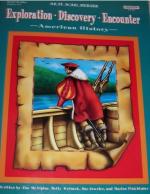|
This section contains 488 words (approx. 2 pages at 300 words per page) |

|
In telling the heroic tale, Columbus and other explorers also demonstrated to varying degrees both a lack of accurate knowledge about the globe in the fifteenth and sixteenth centuries and the fundamentally hazardous nature of longdistance sea travel. These additional variables add the element of danger and subsequently augment the heroic reputations of the explorers. Contrary to some historical conjectures, explorers during the time of Columbus did not actually believe the world was flat; nevertheless, the state of geographical, astronomical, and technical knowledge was far from what it is today.
The compass had been in use, in one form or another, since at least the twelfth century, thus giving navigators at least some reliable accuracy in terms of direction. But for sailors of the fifteenth century, venturing into an uncharted ocean and losing sight of land still brought grave risks. Although...
|
This section contains 488 words (approx. 2 pages at 300 words per page) |

|




